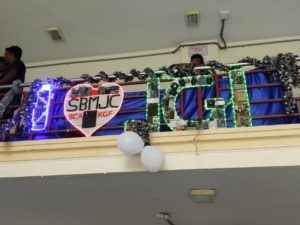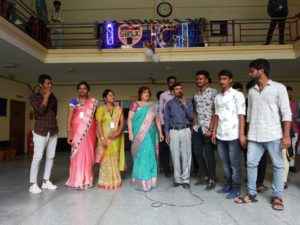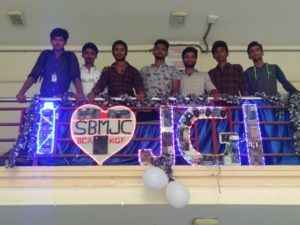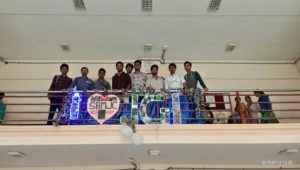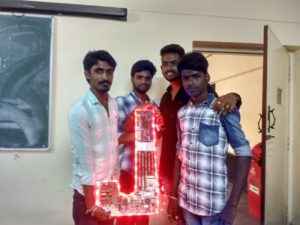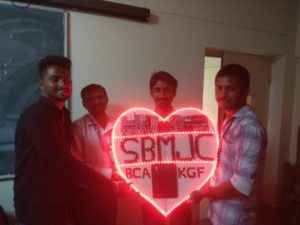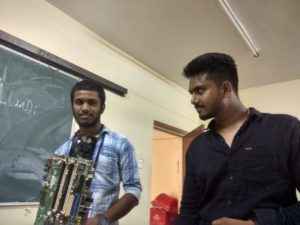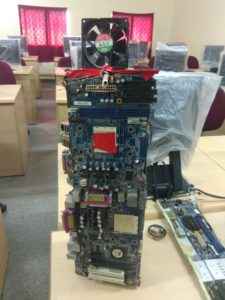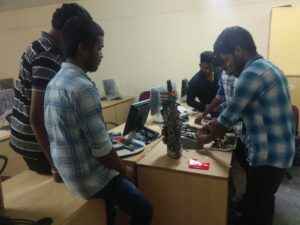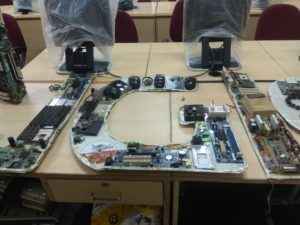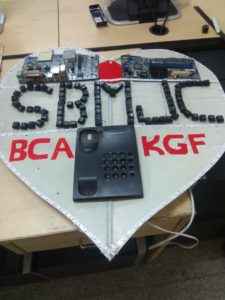The Department of Computer Science Organise E-WasteManagement
On 16th September 2019
Cheif Guest: Dr.Rekha Sethi Principal
Co-ordinators : Mr. Madhu, Mr. Murari Mr.Sathish Mr. Sandeep Mr. Tarun An Mr. Sreenu 2nd Year BCA Students
Special Thanks To: Mr. Anand PRO & Mr. Naveendran System Admin
Created using all Electronic Waste: I Love JGl
Objective of the programme:
E-waste is a growing concern and there has been a rapid increase in health hazards because of discharging the toxic materials into the environment. The goal of e-waste recycling providers is to help businesses and organisations in getting rid of obsolete electronics and safeguard the environment. The E-waste management market is experiencing exponential growth as more and more businesses are hiring the electronic recycling providers that are well-acquainted with efficient e-waste management techniques. Electronic recycling can help in saving unnecessary dumps and landfills, furthermore reduces greenhouse gas emissions, and save natural resources. Giving away the old electronics is important in the provision of refurbished products including mobile phones and computers.
Objectives:
1. Evaluate EU policy and legislation (Waste Framework Directive) options and opportunities related to waste management collection practices.
2. Contribute on mobilising ICTs to facilitate the transition to an energy-efficient, low-carbon economy waste management methodologies. The overall aim is to contribute with the EU objectives in relation to GHG reduction for 2020 in the waste management sector.
3. Develop appropriate environmental assessment, implementation and monitoring activities related to different waste collection methodologies and the respective benefits to improve current waste management practices.
– Improvement of people’s quality of life
– Reduce environmental impact comparing with current methodologies
– Increase waste recycling level and citizens’ cooperation
– Reduce investment and operational costs, noise and traffic problems
4. Demonstrate the optimisation of waste management practices (Local Action Plans) through the implementation of the EWAS model at a local and sectoral level.
5. Increase the awareness of new waste collection methodologies, provide training and disseminate information for the active participation of local stakeholders.
